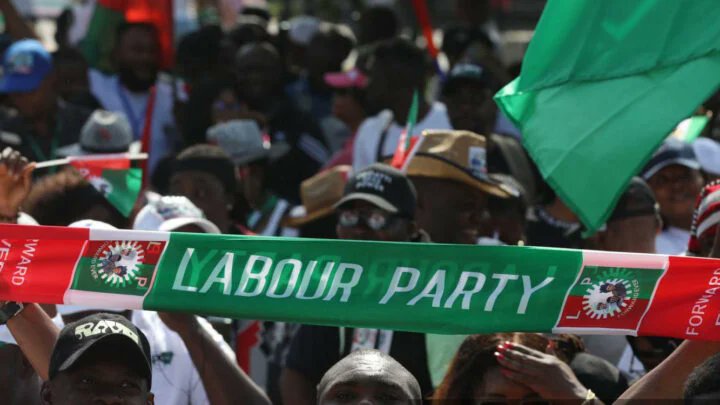The Labour Party, once propelled to national prominence by the unexpected success of its 2023 presidential candidate, Peter Obi, is now embroiled in a bitter internal power struggle, a situation described as “karma” by Joseph Faduri, a former presidential aspirant who alleges he was unfairly denied the party’s ticket in favor of Obi. Faduri’s accusation adds another layer of complexity to the already fractured leadership landscape of the party, which is currently witnessing a three-way contest for control. This internal conflict threatens to unravel the gains made by the party during the last election cycle and raises questions about its future viability as a political force.
Faduri’s claim centers on the events leading up to the 2022 Labour Party presidential primaries. He asserts that he invested significant resources and effort into revitalizing the party, which he describes as a “dead structure” before his involvement. He alleges that he was then unjustly sidelined by party leaders who maneuvered to hand the presidential ticket to Peter Obi. This alleged act of betrayal, according to Faduri, is now manifesting as the current leadership crisis, a form of poetic justice for the wrongs he suffered. His decision not to legally challenge the outcome of the primaries, he claims, was motivated by a desire to protect the party’s unity, a decision he now appears to regret in light of the unfolding events.
The current leadership crisis within the Labour Party involves multiple figures vying for control. Julius Abure, the embattled national chairman, faces challenges from both Peter Obi and Abia State Governor Alex Otti, who support a National Caretaker Committee led by Senator Nenadi Usman. Adding to the confusion, Alhaji Lamidi Apapa, the former deputy chairman, has also staked his claim to the leadership, further fragmenting the party’s already fragile structure. This power struggle has created a chaotic and uncertain environment within the party, potentially jeopardizing its ability to effectively function and prepare for future elections.
Faduri’s narrative adds a significant dimension to the understanding of the Labour Party’s current predicament. His portrayal of the party as a moribund entity prior to his intervention, coupled with his claims of being unjustly deprived of the presidential ticket, suggests a deeper history of internal power struggles and strategic maneuvering. His decision to speak out at this juncture highlights the extent of the current crisis and the potential for long-simmering resentments to further destabilize the party. The fact that a former aspirant, who claims to have played a crucial role in the party’s resurgence, feels compelled to publicly denounce its leadership underscores the depth of the divisions and the potential for further fragmentation.
This internal conflict within the Labour Party raises critical questions about its future. The party’s performance in the 2023 elections, largely attributed to the popularity of Peter Obi, offered a glimpse of its potential to disrupt the established political order. However, the ongoing leadership crisis threatens to squander this momentum and undermine the party’s ability to capitalize on its newfound visibility. The inability to resolve these internal disputes effectively could lead to further defections, factionalism, and ultimately, a decline in the party’s relevance in the political landscape.
The unfolding drama within the Labour Party serves as a cautionary tale about the importance of internal cohesion and transparent leadership within political organizations. The alleged manipulation of internal processes, as claimed by Faduri, coupled with the current power vacuum, highlights the fragility of political structures and the potential for internal conflicts to derail even the most promising of political movements. The ability of the Labour Party to overcome this crisis and emerge as a unified and effective force will depend on its capacity to address the underlying grievances, establish clear leadership structures, and rebuild trust among its members. Failure to do so risks relegating the party to the margins of Nigerian politics, squandering the potential it demonstrated in the last election cycle.














